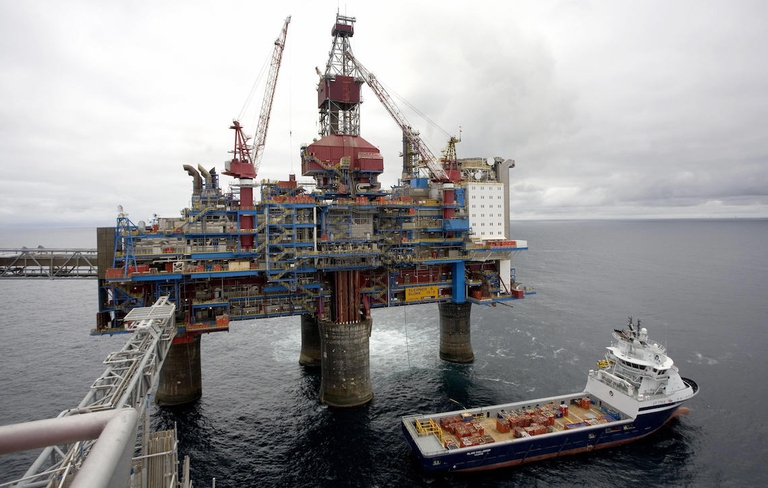
The United States will have to obey restrictions and won’t be able to expand oil exploration in the Arctic and Atlantic Oceans, against President Trump’s will.
La “carbon neutrality” verrà raggiunta in Norvegia entro il 2030, ovvero venti anni prima rispetto a quanto previsto inizialmente.
Norway is ready to zero its environmental impact in terms of greenhouse gas emissions. The parliament has approved a plan to reach the “carbon neutrality” goal 20 years earlier than the deadline set for 2050. Namely, the northern European country aims to cut its emissions to zero by 2030.
Despite the opposition of the right wing – which is still in the minority in the Parliamentary Assembly –, Norwegian MPs adopted the environmental plan in a 54-47 vote. This has been defined as a direct consequence of the Paris Agreement reached during the United Nations Climate Change Conference (COP21) in December.
However, note that Norway is still one of the world’s major oil exporters and its energy production depends almost entirely on hydroelectric energy. This means it hasn’t got a wide margin to manoeuvre to reduce greenhouse gas emissions and, as a result, the government will have to purchase a huge amount of carbon credits on the ETS market.
The Norwegian executive branch hasn’t favourably greeted the decision: “The initiative is premature and costly. The price could be as much as 20 billion kroner (3.2 billion euros) per year in 2030,” said Climate and Environment Minister Vidar Helgesen. The opposition however defended the move: “Would it be less costly and would the consequences for society be diminished if we postpone this measure?” asked a leader of the Labour Party.
According to it, a change was needed given that Norway’s greenhouse gas emissions rose by 1.5 per cent in 2015 compared to the previous year, reaching 53.9 million tonnes of CO2 equivalent mainly because of the exploitation of a newly created oilfield.
Siamo anche su WhatsApp. Segui il canale ufficiale LifeGate per restare aggiornata, aggiornato sulle ultime notizie e sulle nostre attività.
![]()
Quest'opera è distribuita con Licenza Creative Commons Attribuzione - Non commerciale - Non opere derivate 4.0 Internazionale.
The United States will have to obey restrictions and won’t be able to expand oil exploration in the Arctic and Atlantic Oceans, against President Trump’s will.
Oil isn’t attractive anymore. The coral reef and the ocean are worth more protecting instead. This is the historic decision made by Belize, small Central American country on the border with Mexico and Guatemala that has banned all future oil explorations within its territorial water in order to protect its great barrier reef. The Belize
These are the top news stories of 2017 and the people who have most left a mark on a year that has been intense yet also rewarding from the point of view of social and environmental sustainability.
After Pantelleria, Italy in 2014, the Republic of Malta in 2015, and Gran Canaria, Spain in 2016, this year the Italian island of Favignana, off the coast of Sicily, will host the fourth edition of the Greening the Islands International Conference on the 3rd and 4th of November. The event marks an important opportunity to tackle the topic of
On 23 October in Paris the mayors of London, Paris, Los Angeles, Copenhagen, Barcelona, Quito, Vancouver, Mexico City, Milan, Seattle, Auckland, and Cape Town committed to a series of ambitious targets to make their cities greener, healthier and more prosperous. By signing the C40 Fossil-Fuel-Free Streets Declaration, the pioneering city leaders pledged to procure only
The Canadian oil company Pacific E&P, who had been granted the right to explore and extract oil in the Peruvian Amazon by the national government, has halted its exploration activities in block 135 of the rainforest (which is divided into “blocks” of oil and gas exploration). The company released a statement saying it “has made the decision to relinquish its exploration
By Anne Hidalgo, Mayor of Paris Clover Moore, Lord Mayor of Sydney Yuriko Koike, Governor of Tokyo Patricia de Lille, Mayor of Cape Town The next four years will be crucial in determining if the world can avoid the worst impacts of climate change, keeping the global temperature rise to below 1.5 degrees. As the
People living near major roads and busy traffic are more at risk of developing dementia, according to a report analysing more than 6 million people.
Some of the most significant news stories of the year. From the Paris Agreement to the Colombian peace deal, here’s our 2016 in review: the last 12 months seen through the lens of sustainability.









